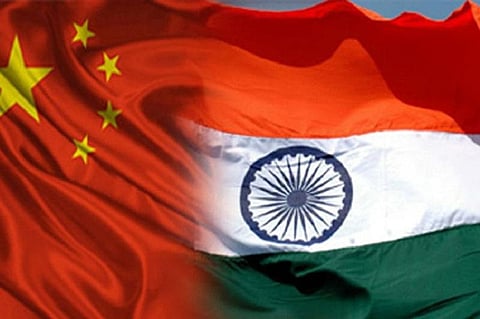
- HOME
- OPINION
- ON GROUND
- INTERVIEW
- INDIA
- NewsGram USA
- WORLD
- न्यूजग्राम
- POLITICS
- ENTERTAINMENT
- CULTURE
- LIFESTYLE
- ECONOMY
- SPORTS
- Jobs / Internships
- Misc.
- NewsGram Exclusive

By Ruchika Verma
Jallikattu or Sallikkattu, also known as 'eru thazhuvuthal' and 'manju virattu' traditionally, was in news last year, around this time due to the ban imposed on it by the Supreme Court. The ban was much hyped and gathered a plethora of media's attention.
Jallikattu ban was much hyped. Wikimedia Commons
Jallikattu ban has also garnered lots of political attention due to the involvement of Tamil Nadu and Central governments. The issue is much hyped due to the political context involved in it too.
What exactly is Jallikattu?
Jallikattu is a traditional sport and spectacle in which bulls of the Pulikulam or Kangayam breeds are released into a crowd of people, and multiple human participants attempt to control the bulls while they try to escape.
Jallikattu is seen as animal cruelty by many activists. Flickr
Jallikattu is practised in the Indian state of Tamil Nadu as a part of Pongal celebrations. The districts, Madurai, Thanjavur, and Salem are the most famous for conducting Jallikattu. The game dates back to Tamil classical period, which went back to 400 BC. Ancient Tamil Sangam literature described the practice as 'Yeru thazhuvuthal' which literally means "bull embracing." With time the sport has become synonymous with valour and bravery.
What happens in Jallikattu and how?
The bulls participating in the game are all lined up behind a narrow gate and released one by one into the arena. The participants have to either control the bull by holding its hump or clutch away from a flag attached to the horns. Owners of the bulls often announce prizes for the man who gets the hold of their bull.
The objective of the game is not to kill or overpower the bull, but to hold onto their hump for a certain amount of time or distance.
The participants are only allowed to hold onto the hump of the Bull. www.in.com
There are three variants to the game. First, when the bulls are released from an enclosed area. Second, when the bull is directly released into the open ground. And third, when the bull is tied to a rope as the only restriction, and a team of 7-9 members has to untie the prize from the bull's horns in 30 minutes of the time period.
The gate through which bulls enter the arena is called Vadi Vasai. The bulls charge at the men standing most near to the gate. One of the rules also says that a participant is only allowed to hold bull's hump and no other body part. The other rules vary from region to region.
Jallikattu Ban and Controversy
Jallikattu is certainly a dangerous sport, which poses a risk of life for the participants.
In 2014, The Supreme Court banned the sport, endorsing the activists' concerns according to which, Jallikattu is not only cruelty towards the animal, but also poses a threat to humans. According to the data provided, between 2010 and 2014, 17 people were killed and approximately 1000 were injured during Jallikatu.
The Jallikattu ban was protested by many Tamilians.
However, the ban invited a lot of protests. Many Tamil communities called this ban a violation of their culture and tradition.
In 2017, many lawyers plead to remove the ban which was rejected by the court. After requests and arguments of Tamil communities, central government reversed the ban, however, after Supreme Court struck the order down, the ban was imposed again. However, the government of Tamil Nadu sanctioned the sport and brought it back into the practice.
